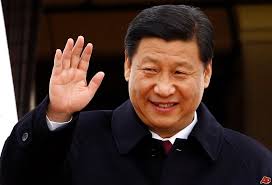Charles Murray is the author of The Bell Curve, Human Accomplishment and Coming Apart, among other works. Any conservative minded person ought to have read these books, and liberals who want to inquire into why we think them mostly wrong. His insights into why things are getting worse, for men, for family formation, for society, and then for women, provides a necessary corrective to Steven Pinker’s rosy view set forth in Enlightenment Now.
There is a moment in the interview below which prompted a blog posting this morning. The issue was the sorting of society on the basis of cognitive ability, which is the essential claim of The Bell Curve. Murray remarks (at 15:30) that “What we are doing now is creating a world which is congenial to people of high IQs. People of high IQ love complexity. They think complexity is fun. That’s why you have Kohlberg at Harvard coming up with his seven stages of moral reasoning….. But, a world governed by that kind of complexity is difficult to deal with if you are not very smart”.
The interview is well worth watching. He preaches the idea that the point of law should be to provide a clear moral compass so as to allow people the maximum moral autonomy which is what he calls “libertarianism”.
I bring up this issue of simplicity and complexity because I spent an evening with liberals last night, possibly wrecking their digestion and certainly providing them with a memorable conflict. At the basis of much of the disagreement was the idea that social democracy – assuming we know what that means – is a morally superior system because it displays the highest levels of compassion. Hence belief in social democracy means necessarily that one is morally superior, because one has more compassion. Thus if I hold that 53% of GDP should be spent by government, and my political opponent says 46%, or 36%, I do not have to think hard about the consequences of a bloated state sector because I have a superior measure of compassion.
Since the criterion of political virtue is compassion, and compassion is best judged by how well society takes care of the poor and the indigent, and thirdly, that this compassion is accomplished through Scandinavian style state intervention, then in substance there is not much further one needs to think about politics.
Forget for a moment the doubtful superiority of Scandinavian welfare statism for showing compassion. My objection is deeper, and less fact-based.
I find such a one-dimensional view of the purposes of political life repugnant. What about virtue, accomplishment, achievement, belonging, and greatness, collective or individual, in a society that understands and appreciates what greatness is?
I have just begun reading Francis Fukuyama’s Identity, the Demand for Dignity and the Politics of Resentment, and already it is evident that he is talking about the real issues of our time.
“But as important as material self interest is, human beings are motivated by other things as well, motives that better explain the disparate events of the present. This might be called the politics of resentment. In a wide variety of cases, a political leader has mobilized followers around the perception that the group’s dignity has been affronted , disparaged, or otherwise disregarded. This resentment engenders demands for public recognition of the dignity of the group in question. A humiliated group seeking restitution of its dignity carries far more weight than people simply pursuing their economic advantage”. (at page 7)
And what group has undergone a persistent social decline of status in the past thirty years? All men? Men of the American working class? Take your pick. This leads us to what Scott Adams and I have been talking about in relation to the Kavanaugh witch hunt. It is not merely the American working class male that is taking a beating, it is all males.
Heather MacDonald writes about the feminist industrial complex in City Journal:
Our booze-fueled hook-up culture has made relations between men and women messier than ever, leaving many girls and women with pangs of regret—but those regrets do not equal rape. If we were actually in the midst of an “epidemic of sexual assault,” as New Jersey senator Cory Booker asserted the evening of the Ford-Kavanaugh hearings, we would presumably have seen women and girls take protective actions, such as avoiding frat parties and flocking to single-sex schools. None of those protective actions has occurred, however. Either women are too clueless to avoid patent danger, or the epidemic of sexual assault is a fiction. All evidence points to the latter conclusion. Judge Brett Kavanaugh may be the latest male to have his life torn apart by that fiction, but he won’t be the last.
Accordingly, I think a male backlash is finally going to manifest itself, not just by dropping out, as young men have been doing, but by male identitarian politics at the ballot box. It cannot start too soon. Compassion and social democracy will take back seat to a necessary social change that is long overdue.
Fukuyama on Identity




